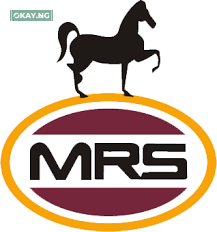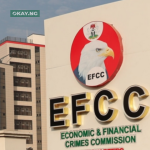MRS Oil Nigeria Plc has announced its decision to voluntarily delist from the Nigerian Exchange Limited (NGX), despite reporting a significant surge in revenue and profits for 2024. The decision, ratified by shareholders at an Extraordinary General Meeting (EGM) on June 25, 2024, signals a strategic shift aimed at enhancing operational flexibility and reducing the financial burden associated with public listing.
“This strategic move will enable it to focus on long-term growth strategies,” the company stated, emphasizing the desire to operate without the constraints of stringent public listing requirements. This comes on the heels of a robust financial performance, with MRS Oil reporting a 71.2% increase in revenue, reaching N312.2 billion, and a profit after tax of N6.49 billion, marking a 62.2% year-on-year growth.
The company’s positive financial results were partly attributed to increased consumer demand following its procurement of products from the Dangote Refinery, perceived by many as offering superior fuel efficiency. However, the gains were tempered by the impact of full Premium Motor Spirit (PMS) deregulation, which led to a decline in sales volume. “The hike in Premium Motor Spirit (PMS) prices following full deregulation adversely impacted sales volume performance,” the company acknowledged, though the overall revenue growth mitigated this decline.
For shareholders who may not wish to continue their investment post-delisting, MRS Oil has initiated a share buyback and capital reduction program. The company has allocated funds to compensate dissenting shareholders, with a claim period set from April 4 to July 4, 2025. Those who do not participate in the buyout will have their shares transferred to the NASD OTC Securities Exchange.
Read Also: NGX Group Shatters Records with 157% Profit Surge, Highest Dividend Ever
The decision by MRS Oil to exit the NGX is not an isolated incident. It mirrors a growing trend among companies, including GlaxoSmithKline (GSK) Consumer Nigeria Plc and 11 Plc (formerly Mobil Oil Nigeria), who have opted to delist, citing various operational and strategic reasons. This trend, as I see it, raises pertinent questions about the long-term attractiveness of the NGX.
With MRS Oil’s market capitalization hovering around N59 billion before the announcement, the delisting contributes to a noticeable contraction in the NGX’s overall market size, which currently stands at approximately N63 trillion. This contraction, in my analysis, reflects a confluence of factors, including rising compliance costs, reduced trading liquidity, and a challenging macroeconomic environment.
The human angle here is significant. For individual investors, especially those with limited financial literacy, such shifts can create uncertainty and anxiety. The promise of continued trading on the NASD OTC is meant to provide reassurance, but it also necessitates adaptation to a less familiar trading platform.
The repeated exits from the NGX suggest deeper structural issues that demand urgent attention. To restore investor confidence and maintain the bourse’s viability, stakeholders must address these challenges proactively. MRS Oil has pledged to keep shareholders informed as the delisting progresses, but the broader market requires more than just company-specific assurances. It requires systemic reforms.












